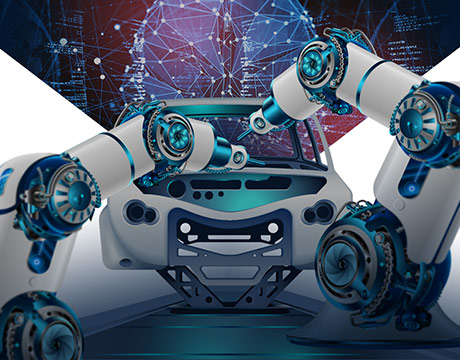Business Intelligence and Data Visualization. Careers in Data Science. Natural Language Processing (NLP). Popular Science may receive financial compensation for products purchased through this site. These articles are intended for non-experts, written in simple English, and particularly suited for professionals managing a data science team, or for practitioners interested in the field of data science and machine learning.
These articles (and more) will soon be combined in several booklets available exclusively for DSC members. We envisage a future in which the design, synthesis, characterization and application of molecules and materials is accelerated by artificial intelligence. ML techniques are used in intelligent tutors to acquire new knowledge about students, identify their skills, and learn new teaching approaches. It is one of today’s most rapidly growing technical fields, lying at the.
A new study uses machine learning to project migration patterns resulting from sea-level rise. Researchers found the impact of rising oceans will ripple across the country. What exactly is machine learning? Engage With Our Up To Date Stories That Will Grab Your Attention From The Start!

Frequently, when you encounter artificial. Written exclusively for Data Science Central, by Vincent Granville. Articles are freely available to everyone to read and reuse immediately upon publication, provided attribution to the author is given.
Machine Learning : Science and Technology is a fully open access journal. Publication is funded by article publication charges (APCs). Machine-learning techniques used by thousands of scientists to analyse data are producing that are misleading and often completely wrong.

Dr Genevera Allen from Rice University in Houston said that the increased use of such systems was contributing to a “crisis in science”. Machine learning can appear intimidating without a gentle introduction to its prerequisites. The good news is that once you fulfill the prerequisites, the rest will be fairly easy. National Geographic Subscriptions for as low as $for a Full Year!
With the use of sufficient data, the relationship between all of the input variables and the values to be predicted is established. It becomes easier for the system to predict a new value given other input variables. The journal publishes articles reporting substantive on a wide range of learning methods applied to a variety of learning problems.

For true machine learning , the computer must be able to learn to identify patterns without being explicitly programmed to. It sits at the intersection of statistics and computer science , yet it can wear many different masks. In this chapter we present an overview of machine learning approaches for many problems in software testing, including test suite reduction, regression testing, and faulty.
It starts gently and then proceeds to most recent advance in machine learning and deep learning. It’s very easy to read and will appeal to people at any level as the second edition even goes to cover GANs. Section then reviews the state-of-the-art in the application of machine learning to glass science and engineering.
Finally, Section offers some conclusions and future directions. Overview of machine learning techniques for glass science 2. Regression techniques 2. By using machine learning , computers learn without being explicitly programmed. But the nature and extent of this promise has not been systematically assessed. Scientists have been applying ML techniques to problems in the sEg for decades (11–13). Despite the promise shown by early proof-of-concept studies, the community has been slow to adopt ML more broadly.
There is general recognition of a reproducibility crisis in science right now. I would venture to argue that a huge part of that does come from the use of machine learning techniques in science. It is a branch of artificial intelligence based on the idea that systems can learn from data, identify patterns and make decisions with minimal human intervention.
No comments:
Post a Comment
Note: Only a member of this blog may post a comment.